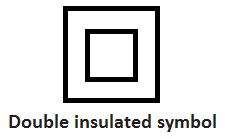Cuba travel adaptors
With so much to see and do, discovering all the delights of Cuba can take a bit of planning. It’s important to arm yourself with knowledge, to make sure you see all the delights this country has to offer (as well as sampling the sugar white beaches).
You will need to consider what to pack, to ensure you can use your personal electrical appliances safely whilst abroad. This normally includes the use of a travel adaptor, which is a device that simply allows you to plug any UK electrical appliance into a foreign electrical socket. It is important to note that it does not convert the voltage or frequency.
Cuba travel adaptors: which type do I need?
For Cuba there are four associated plug types, types A, B, C and L.
- Plug type A is the plug which has two flat parallel pins
- Plug type B is the plug which has two flat parallel pins and a grounding pin
- Plug type C is the plug which has two round pins
- Plug type L is the plug which has three round pins.
-
Type A
-
Type B
-
Type C
-
Type L
Cuba operates on a 110/220V supply voltage and 60Hz. Although the power supply in Cuba is mainly 110V, some of the newer hotels operate at 220V.

Voltage converters and transformers
Electricity supplies worldwide can vary from anything between 100V and 240V. It can be extremely dangerous to use an electrical appliance that is rated at a voltage different from the supply.
As voltage can differ from country to country, you may need to use a voltage converter or transformer whilst in Cuba. If the frequency is different, the normal operation of an electrical appliance may also be affected. For example, a 50Hz clock may run faster on a 60Hz electricity supply. Most voltage converters and transformers come supplied with plug adaptors, so you may not need to buy a separate travel adaptor.
All converters and transformers will have a maximum power rating (AMPS or WATTS) so make sure that any appliance you intend to use does not exceed this rating.
Dual voltage rated appliance
You can determine whether you’ll need to use a converter or transformer, by looking at the appliance rating plate.
A dual voltage rated appliance will display for example ‘INPUT: 110-240V’ on the body of the appliance or its power supply. This means that you will not need a converter or transformer but just a travel adaptor, because Cuba operates on a 110/220V supply voltage, which is within the 110-240V range that the dual voltage appliance operates on.
Single voltage rated appliances
In Cuba the supply voltage is 110/220V. If the appliance or its power supply are not dual voltage rated, the single voltage appliance will have to be used alongside a voltage transformer or converter to allow the appliance to work safely and properly (unless the appliance operates at 110V or 220V). If this is not the case it should be used alongside a voltage transformer or converter to allow the appliance to work safely and properly.
Converters and transformers perform a similar function, but their applications differ. Converters are typically used with appliances that operate for a short duration (1-2hours), whilst most transformers can be used alongside appliances that operate continuously.
It’s important to understand that some travel adaptors are not suitable for any appliances that require an earth connection. These types of travel adaptors should only be used with double insulated equipment, which will be clearly marked with the symbol shown below.

We recommend you check your appliances before embarking on your journey, to understand the requirements in Cuba.
